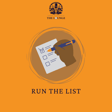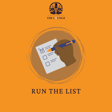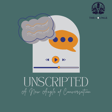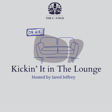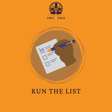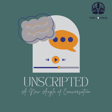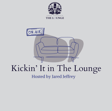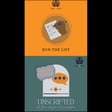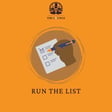Become a Creator today!Start creating today - Share your story with the world!
Start for free
00:00:00
00:00:01

How To: A Survival Guide Through Every Stage of Medicine
Join us for this special episode of SNMA Presents: The Lounge as our host Erica Dingle sits down with Dr. Manna Hagos to discuss tips for stress management and effective studying from pre-med through residency. Dr. Hagos is a board-certified anesthesiologist, entrepreneur, and author and has a handbook out tailored to first-generation physicians called The Pre-Med Survival Guide. To learn more, visit her website doctormanna.com!
To share your thoughts on our discussions or if you have any questions to ask our hosts, email podcast@snma.org for a chance to be featured on the show!
Disclaimer: The opinion and views expressed on our podcast do not reflect the official stance of Student National Medical Association.
Transcript
Introduction of Dr. Manal Hagos
00:00:21
Speaker
Hello everyone and welcome to this special episode of SNMA Presents the Lounge. This is student Dr. Erica Dingell and I have the pleasure to speak with Dr. Mina Hagos.
00:00:37
Speaker
She is an Eritrean-American physician, entrepreneur, and author with interests in medical technology, educational technology, and artificial intelligence. Dr. Hagos obtained her Bachelor of Science in Psychobiology from the University of California, Los Angeles.
00:00:58
Speaker
otherwise known as UCLA, where she graduated with a 3.95 GPA. We got to give it up for you. That is amazing and no easy feat. She then obtained her MD from the University of Southern California, USC, and thereafter trained in anesthesiology at LAC USC Medical Center, a level one trauma center.
00:01:27
Speaker
Dr. Hagos is also the author of the handbook for first generation physicians, the pre-med survival guide. This new book for aspiring physicians is available as both an ebook and an audio book at drmana.com. So without further ado, I would like to welcome you, Dr. Manal Hagos. Thank you so much for being here with us tonight.
00:01:55
Speaker
Thank you so much for having me. It is a pleasure and an honor to be here to all the listeners. Hello, I'm Dr. Manahagos and I'm so excited to share with you
00:02:08
Speaker
some
Journey to Medicine
00:02:09
Speaker
amazing tips and strategies that'll be helpful for you on your journey. I honestly was so excited to have Dr. Manal with us after, I guess we could say a mutual connection. I'm not even in medicine recommended your book and just a blog.
00:02:30
Speaker
and another podcast that you were featured on. And I'm just, again, so excited to be here with you. So my first question, what exactly did your journey to medicine look like? And a follow up question, why anesthesiology? Great question. So I am a proud first generation Eritrean American immigrant.
00:02:59
Speaker
And as the eldest of my siblings, I got to enjoy the great experience of being an immigrant, which is high emphasis on education and excellence. So my interest in medicine started off very naturally, thankfully for me, because I had, I already had my own interest in the natural sciences. I was interested in geology and oceanography when I was in elementary school.
00:03:28
Speaker
And I had the great fortune of attending a very well-resourced school district. And that included career days that were very, very, I mean, it was amazing just in terms of the exposure to so many different careers. And one of those time slots that I had signed up for was health oriented. And it was my first opportunity in experiencing, you know, a life
00:03:57
Speaker
not
Healthcare Access & Equity
00:03:58
Speaker
necessarily alive, but a brain of a patient, a deceased patient who had suffered with Alzheimer's. That was my first major exposure to the field of medicine in the human body. And I thought, all right, this is it. This is so cool. I don't have to go swimming deep into the ocean or dig up rocks in so many different places, though both of those are great fields. This is so much
00:04:27
Speaker
so much more interesting to me like I started noticing some people might think it's odd now but I would notice people as they would walk around after this experience I had and I thought wow the human body is so amazing when it's working well and even when it's not working well it's an opportunity to help people who are struggling or suffering to you know improve their
00:04:53
Speaker
their quality of life or maybe even longevity, depending on the particular circumstance. So that was my inflection point for pursuing medicine. And then as I matured and I had first and secondhand experiences of many of the challenges that African Americans, Africans, Caribbean Americans, other diverse people
00:05:23
Speaker
experience within the healthcare system when it comes to equity and access. My understanding and appreciation for pursuing a career in medicine as a physician matured, and the role that I could play and contribute to society in my communities was ignited. So I continued on doing the pre-med thing, essentially, which is doing all the things.
00:05:54
Speaker
For so many of us who are listening, it definitely seems like all the things, right? People say, don't be a box checker. Don't do things. And it's like, but you need to do things to be competitive. Exactly. And the competition is fierce. And yes, there are things to do to make you competitive, not only as a premed, but obviously later on medical school and residency, which we'll get to.
00:06:21
Speaker
So briefly, that was my first interest or exposure in elementary school, and then life experiences. And then I continued with a very significant amount of shadowing, volunteering, and whatnot in undergrad at UCLA. And I
Choosing Anesthesiology
00:06:41
Speaker
maintained that interest and developed my passion for medicine as a physician and continued on to pursue it.
00:06:50
Speaker
with my medical degree from the USC Keck School of Medicine. Awesome. That is an awesome journey. And beyond that, why anesthesiology specifically? So there are so many rotations that as a medical student, one has access to surgical and non-surgical specialties. Anesthesiology is considered a surgical specialty.
00:07:18
Speaker
not because you do surgery as a surgeon, but you're in the operating room and the lifestyle is different. So as I rotated through, I had pretty open mindset. I came into medical school thinking, maybe I'll be a nephrologist because of my interest in chronic health, chronic health disparities.
00:07:41
Speaker
And then, but I didn't know a nephrologist or anything. And then I thought, oh, maybe PM&R, which would be great if more people could get access to some of these fields that sometimes we can't really rotate through. So I had no, I didn't really know anything about anesthesiology, but one day there was a call to action in my medical school basically about, you know, reminder, hey, you all need to do research. It looks, you know, it's good for your application.
00:08:12
Speaker
There's an opportunity coming up, you know, with these different departments. And then I had found out an anesthesiologist at the medical school and affiliated hospital was giving a presentation on a topic. I did a little background research and I said, okay.
00:08:31
Speaker
Anesthesiology seemed kind of interesting. I got a little idea or exposure to it in medical school and I thought, okay, well, if I can get this research project, this will set me up really well because anesthesia is considered one of those e-road specialties, right? Um, if you don't know what that is, you'll find out soon. So I'll let you find that out on your own. Um, so I, so we had lecture basically all day, right? And then this extra presentation that you,
00:09:01
Speaker
I think we were encouraged to attend. And so I made my plan the night before, had my professional clothes, my resume, my CV that I had updated. And I decided, okay, I'm going to show up. And I'm going to make sure that when I speak to this anesthesiologist, I am going to look as professional as I can.
00:09:25
Speaker
in professional tire even though I just came from all day lectures. And I'm gonna have my CV and I'm gonna pitch myself. And that's what I did. I sat through the lecture having changed immediately prior to and came up to him afterwards, introduced myself, handed my CV and pitched why I would be the best person to take on as a researcher essentially. I think he was either impressed or shocked.
00:09:55
Speaker
because the, you know, I'm not sure if he expected that. So he said, okay, well, let's see, meet me in my office at this day. He had a strong Eastern European accent. So I do so again, same thing, show up that way, have a conversation, talk about his research. And I join, I do research with him for the next three years.
00:10:21
Speaker
and had the opportunity to present our research at the regional anesthesia conference, which is more western anesthesia regional conference, and also the national conference at ASA. And that was two different locations, so got to travel and speak to
00:10:44
Speaker
other physicians that was probably one of the youngest people there in terms of being a medical student rather than being a resident. So it was an incredible experience. And I learned a lot from him and the research and the work that we did. And by continuing to do that research, not only did it support my application just in general, regardless of whatever medical specialty you end up going into,
00:11:12
Speaker
being able to understand, apply the scientific method appropriately and with patients is always a benefit regardless of what the research area is in. So having that mindset, I was open to it. I did it and I said, okay, you know what? This is actually a good field. It's a good mix of cerebral and procedural. I have very high respect for all my physician colleagues in different specialties. But when I rotate on medicine, I was just like, you know what? The six hours.
00:11:41
Speaker
of rounding and talking about all these patients is a lot of information is great. But something that allows me to use my hands and do procedures helps to keep my interest and energy up and anesthesia seem like that field. It's not just the intubation and line placement or invasive line placement at the start of the case.
00:12:05
Speaker
It's intraoperative monitoring, so your anesthesiologist may be seated or may be standing at the pixus, the machine that distributes medications otherwise, but their mind is on. They're aware of what the vitals are by just the frequency, the pitch of the sound, et cetera, what the surgeon is doing and they are
00:12:34
Speaker
constantly adapting what they're doing to make sure from a time perspective that things are progressing smoothly. Anesthesiologists are the patient safety specialists. They're truly advocates for their patients in so many different ways, and all of that appealed to me. So I thought, okay, this is a good fit of what I have an interest in.
00:12:56
Speaker
The financial payout from this specialty looks like it's great and that was important to me. And I know for many, many, if not all of the listeners, that's also very important consideration is the financial aspect of the specialty. And what is the lifestyle
Balancing Medicine & Writing
00:13:14
Speaker
like? Is this something that you can do long-term or if it isn't, or that's not what you want to do because you have other passions like business, et cetera.
00:13:22
Speaker
that this is something that you could do on that there's flexibility that you could do locums part-time whatever so that you can be your full self and pursue you know other passions if you have them that's that's amazing i mean you
00:13:41
Speaker
I hope people really are tuning in and taking notes on this one, this episode, because you've just given so much. So many people don't get the experience up front, right? We have what, two years of basic sciences. If you're a US med student, and then if you're in the Caribbean, it's a little different. And some of us don't get exposure to patient care.
00:14:04
Speaker
into those rotations for so long. So it almost primes us for what's to come. So I definitely appreciate your perspective. And you talked about passions and
00:14:16
Speaker
you know, making sure that you consider your passions when it comes to, you know, your career in medicine. And before I get into this question, let me first say congratulations on your book and you're welcome. And it's honestly so refreshing and great to see that you've been able to be involved in other passions besides anesthesiology.
00:14:41
Speaker
So my next question is how do you maintain other interests outside of medicine while making space for that that that's that that is in medicine? So how how exactly did you come up with this book and practice anesthesiology in a sense? It's an excellent question, Erica. So
00:15:10
Speaker
The first question, essentially, how, in terms of time management and energy management, which is essentially what everything comes down to. So one of the thousands of lessons that I learned from residency that I'm very grateful to, in retrospect, be able to fully appreciate, or hindsight, as I say, is that we make time for things that matter to us. So if something doesn't matter,
00:15:40
Speaker
then we're likely to ignore it. And this is, you know, outside the context of, you know, if there are additional challenges that somebody is facing, like whether it's health challenges, mental health challenges, you know, environmental, circumstantial things that are always at play, because even when people are pursuing medicine, whether it's in medical school residency or practicing later on, that is always,
00:16:08
Speaker
challenge right you're still a full human being who works as a physician it's not the totality of one's identity usually or sometimes it depends on the person so that's something I learned is we make time for things that really matter to us and once I recognize that I practiced it on my own time so sometimes in
00:16:37
Speaker
especially in residency, I'd be post call, so post 24 plus hour call, including, you know, documentation or whichever, if it was ICU or otherwise, and would come home, take a nap sometimes, not all the time, and I would make time to schedule
00:16:55
Speaker
you know, going out to dinner with a friend of mine or a cousin of mine. Um, even though that was my post cold day and usually you say, and I say, well, I'm going to sleep for a couple of hours, but I'm going to get up and I want to do these things because, um, because I was, I started to realize the importance of being connected and how important that was for my health and my success as a person and as a physician. Um,
00:17:25
Speaker
So same concept when it came to creating the pre-med survival guide, it was really out of necessity because at the point I had the idea for it when I was in the midst of the global pandemic that we have all come to shake our fists at in frustration for so many different reasons. Exactly. And I did a lot of reflecting as one does often when they're faced with either
00:17:54
Speaker
you know, the concern or fear for their own mortality or those that I or those that they love in the various challenges that exist within the healthcare system. And I realized that some of the things that I really struggled with as a first generation physician who's also a first generation immigrant
00:18:16
Speaker
um, a first-generation university graduate and learning a lot of things through the school of hard knocks through firsthand experience. And, um, you know, even though I had amazing mentors who are still great mentors and friends of mine today, it's, we're all limited by time and energy. And I thought, you know, it'd be so great if people who look like me, who had similar life experiences,
00:18:44
Speaker
to me would be able to get consistent, relatable, practical advice that applies to them on their journey into and through medicine. So I decided to do something about it and so I created the Pre-Med Survival Guide eBook and the Pre-Med Survival Guide.
00:19:03
Speaker
workbook and audiobook so that since we all learn differently, there's different formats to obtain information. We all know as medical students and physicians that multimodal exposure is really helpful for retention of facts and strategies and important information.
00:19:22
Speaker
I said, this is true. Multimodal and space repetition. Those are the two things that stick with me the most. So you are spot on. Exactly. Yeah. You know, you know what's going on. So, um, so I decided, you know what, like we're probably, we're losing a lot of
00:19:43
Speaker
black, African, Caribbean, and other diverse people from medicine, whether it's earlier on the pipeline, because there are advisors, whether well-meaning or otherwise, who say, I don't really know if you could do this. Have you considered another field? You know, medicine is really hard, obviously. But I don't know if you really cut out for it in their own words.
00:20:12
Speaker
how many people were losing in those early years and then through medical education and onwards and retention from various challenges like the isms, sexism, racism, et cetera, and all the very unique challenges that physicians face in a very demanding, high-commitment lifestyle and profession that really is medicine.
00:20:42
Speaker
So I took down like the accumulated wisdom from myself and others and got down to the main point. Cause nobody has time to read through a bunch of stuff, right? To get information, like just give me the facts, give me the juice, give me the meat. Let me get to the point. And that's what I did. So, uh, went from defining your why, you know, the numbers aspect of this, of the game.
00:21:11
Speaker
in medical
Empowerment & Study Strategies
00:21:12
Speaker
school and residency and beyond the unique challenges that women, Black Americans, African Americans, Caribbean Americans, et cetera, and other diverse individuals who will maybe Southeast Asian or otherwise may experience on their path from a perspective of empowerment.
00:21:38
Speaker
and encouragement versus, hey, all this bad stuff, you're likely to encounter it. Work hard, study hard, keep your head down. But really instead getting into, you know, the foundational character attributes that are necessary to emotional intelligence development, relationship building and management. Because you can study all you want. But if there is within your mind and
00:22:08
Speaker
an enemy, a negativity that is constantly questioning, doubting your ability and your capabilities, it's always going to be hard. If there are people outside of you, whether it's people you work with, people you may look up to at one point or whomever, who disappoint you in some way because
00:22:30
Speaker
you know, they're negative about your abilities, or they're not as encouraging as you'd like them to be, or you just don't feel like you're getting that genuine support where you feel like you have someone who's going to be on your side, it gets really, really hard, you know? Just studying hard and keeping your head down isn't enough, in my opinion. Sometimes it has to be enough, and humans who are very adaptable, and we can make do,
00:23:00
Speaker
be usually for, you know, for an acute phase, a relatively short period of time, but to do that chronically or in a long stretch of time, it becomes very challenging and people get worn down. So that's a little bit about why the premed survival guide was created, what it does for the reader and how, which is getting into strategies
00:23:28
Speaker
and tips to navigate stress and all that stuff. We all need to go by this book, whether you're a pre-med or in med school, just hearing you speak about it and knowing what I know of it thus far. I feel like at any stage in training, this book would be helpful just to shift your perspective. I mean, you mentioned like there's, you can't do certain things and practice certain behaviors
00:23:57
Speaker
for and expect that that longevity will carry you head down and work hard works for but so long so i really feel like this book is geared towards helping us excuse me so thank you again
00:24:13
Speaker
And these questions, I'm like, which question should I ask you next? Because you're touching on everything that I want to ask. And I know we have to have the conversation about testing, because unfortunately,
00:24:30
Speaker
Part of being successful in medicine has to do with standardized testing, right? We have the MCAT as pre-meds, the USMLE until, you know, you are done with step three and you can finally cost UWorld aside. So in that, what are three to five study strategies that you would recommend
00:24:55
Speaker
when preparing for course exams and larger exams, such as the ones I've mentioned, the MCAT, USMLE, et cetera. Yeah, your pardon. Yeah, you're so right. That's such a huge hurdle for so many, for so many different reasons. Support or lack of support, resources like maybe financially being restricted or feeling challenged to get
00:25:24
Speaker
all the resources possible beyond, you know, the first aid and the pathome and all that. And by the way, I'm not affiliated with these. These are just some of the, some of the resources that many of us tend to use. So these are my steps. Number one, know your why. Know your why.
00:25:49
Speaker
I speak about this. This is, and I think this is so important. I made this the first chapter actually of the premed survival guide ebook and the workbook. Because once you know why you are here, why you are putting yourself through all this suffering, once you know why you are chasing this dream,
00:26:17
Speaker
why this is so important to you. You now have the fuel to keep going in with perseverance, with confidence, with courage. You have to know your why. Many of us, all of us had to answer that essay prompt to get into medical science.
00:26:44
Speaker
And you know what that is for you, for all the listeners. So it is so important to know this and then revisit it.
00:26:55
Speaker
at some kind of regular or even irregular basis, because often we don't. We find ourselves in hard times studying for that shelf exam, you know, on that surgery rotation, try to impress people and do the right thing so that we can get good letters. And if your medical school, you know, does, you know, honors, hypascale, that kind of a system, you want to put yourself in the best position so you can set yourself up later while for residency, I get it.
00:27:25
Speaker
and knowing your why is going to really help you get the fuel you need, not just to keep your head down and keep going, but to keep your head up and keep going. I like that. Number two. No one is an island. No one is an island.
00:27:46
Speaker
Sure, you have to study so many hours on your own to review biochemistry, pharmacology, microbiology, pathology, hematology, et cetera. But we all need help. We all need support. Sometimes we lean on our peers who are studying with us and we can commiserate.
00:28:12
Speaker
on how many slides that a microbiome lecture was or whatever the particular challenges like MSK or whichever subject. And so it's important for us to keep in mind that all of us need help and not just at our worst, but all the time. Something in medicine within the culture of medical
00:28:39
Speaker
education and training that many of us encounter or end up unconsciously absorbing is that physicians are not regular people. And they're not in many ways. They're very special people. But they're not normal because they need to be able to study for 10, 12, 14 plus hours at a time. They're special because
00:29:08
Speaker
They can go 24 hours without sleeping. And on and on and onwards. But people burn out. People are people, they are not machines. And not yet anyway.
00:29:28
Speaker
And in the meantime, remembering that we are full human, emotional, spiritual beings with big brains that can do amazing things and big hearts that can be so incredible for so many thousands of people is wonderful. However, no one is an island. We all
Stress Management & Community Support
00:29:51
Speaker
need help. And that just doesn't mean asking for help, studying for a shelf exam.
00:29:56
Speaker
or asking upper class men, you know, what things you need to do on a rotation to honor or high pass. It's also taking care of yourself. Sleep, food, relationships, nutrition, oftentimes medical school, residency, and just the whole, and even in practice is so all encompassing that sometimes many people find themselves
00:30:24
Speaker
especially within that first year or two years, finding themselves in a really major transition period where they haven't been in this kind of environment before. They don't know anyone in their family who can provide them firsthand experience and advice. So they're just literally discovering the new world on their own, it might seem, but you're not the only one. And even though up to 70% of
00:30:52
Speaker
U.S. medical students come from physician households. So many of them may have actually seen these things, heard these things. You aren't the only person who hasn't. There are so many people and just being able to practice discernment and be honest and vulnerable with people that you discern that it's right to do so and share some of your
00:31:22
Speaker
concerns, your fears, your challenges, so that you can get resources, advice, and support. Relationships really matter. Number three, use a tech people hybrid model to improve accountability. A tech hybrid, a tech people hybrid model, meaning use the best of technology and use the best of people to help you get to where you want to be. It's not selfish.
00:31:52
Speaker
is necessary. If you're not helped, you cannot help others to the best of your abilities. That's just how it works. Sure, you can burn yourself out and you could probably perform at a very high level when many of us have had to do that or are even doing that currently. But again, that sustainability portion, that happiness, joy portion ends up becoming impacted.
00:32:17
Speaker
You know, use, get creative. You're pretty creative to get to this point wherever you are and keep using it, even though you feel like everything is maybe more left brained in terms of like studying the sciences and being STEM oriented. Creativity and art is very much a part of medicine and the practice of medicine. So consider continuing to develop that creativity, you know,
00:32:45
Speaker
So how do you build your own tribe in a medical school that is states or even a country away from where your family is? How do you build your tribe in an environment where maybe there aren't as many people who look like you and in medicine when it comes to African Americans, Africans and Caribbean Americans, et cetera, that is absolutely the case in terms of the numbers.
00:33:11
Speaker
So getting creative or continuing to develop that creativity is very much necessary and not just for survival, but also hopefully to actually thrive and continue enjoying what you set out to do. So those are my three tips. Know your why. No one is an island. Ask for help.
00:33:40
Speaker
and use a tech people hybrid model. Those are amazing. I'm over here taking notes. And I'm telling you, I hope our listeners are doing the same. And I am plugging your book here because we're just so grateful to have you. And I believe the book is going to help so many of us. So at the end, we will announce the name of the book again and where everyone can get it.
00:34:08
Speaker
purchase it, download it, etc. In those three things that you mentioned, knowing your why,
00:34:17
Speaker
knowing that no one is an island and having a tech people hybrid model. I would assume that this helps with managing stress on so many different levels, right? Whether it's the stress of pursuing medicine, the stress of making sure, you know, we have people in our lives that just don't understand what we're going through as medical students and even as physicians. So in
00:34:48
Speaker
I guess taking into consideration those three things, what are some other strategies that you put into place for reducing stress? And I would say both in med school and then in residency. And did they shift a little bit from med school to residency?
00:35:13
Speaker
Yes. You know, in residency, part of stress management was sleeping. I hear so much of that. So it's true. You heard it first. Yeah. And this isn't too ridicule or put down. Anyone who is struggling or feeling like medical school is a huge challenge because it is. And anyone who feels like no one understands what you're feeling like as a medical student,
00:35:42
Speaker
Because they don't. Unless someone has been through what you are experiencing, they can have empathy or express sympathy for what you experience, but it's completely different than having first-hand knowledge.
00:36:00
Speaker
Having said that, yes, stress management techniques do change. And it's sometimes just a matter of schedule and energy. It really comes down to energy. Wow. Absolutely. More so in residency. So for example, in medical school, I tried a couple of different things at different times because it's just, again, being adaptive to your needs and the changing environment is paramount.
00:36:28
Speaker
So when you have more time in your schedule, because of the rotation that you're on, the subi you're on, whatever, the block that you're on,
00:36:38
Speaker
talking about the first two years versus the last two years, then your stress management is going to be different. It could be cooking for yourself, you know, as you're like, oh, wow, I love myself because I'm actually trying to give my body good nutrients instead of living off of the cafeteria food, which many do. Exercising going to the gym, I would do that certain periods.
00:37:02
Speaker
playing basketball, taking a walk, hanging out with friends, binging on movies or older TV shows, which is a little bit harder to binge in medical school in terms of time. But when there's space between block periods, you know, like when I discovered the Game of Thrones very late toward the end of medical school.
00:37:30
Speaker
Stress management comes in so many different forms. For some people, it's going out. For some people, it's doing nothing and letting their brain vegetate and just recover from the trauma of whatever block that you're on, which I laugh when I say that, but not to be so facetious knowing that actually, yes, some rotations and blocks and experiences are in fact traumatizing because of the things that you end up seeing as a student doctor.
00:38:00
Speaker
and physician, so please don't take my laugh as something to put that down. Not at all. And then in residency, a lot of my stress reduction was resting, just being
00:38:20
Speaker
you know, no monitors, no alarms, no beeping medical devices, no pagers, no phone notifications, just resting, enjoying reading. I'm a voracious reader, so I was always reading a combination of books on investing and business and, you know, hanging out with my friends, getting food.
00:38:50
Speaker
I'm a total foodie. I love to eat great food. So that gives me a lot of pleasure. And that experience is always fun for me. Assuming the food is great, obviously. It's not done. Thanks for giving us some great food. That was terrible. It has to be good food. It has to be. Right. It has to be great food. So it changes. And there's no silver bullet, although we're not talking about werewolves or anything.
00:39:20
Speaker
You'll hear this a lot in medicine. There's no silver bullet to always, not always anyway, treating particular patients or approaching certain situations like medical emergencies. Being highly adaptive is just a lifelong necessity. So it changes. And so whatever that looks like for you, that's okay. Hopefully it's kind of healthy for you. It helps you to not only relax,
00:39:49
Speaker
But to improve your health or recover, you have to end up doing a lot of recovering. I think in medical school, you kind of get used to it, figure out a method, you go to residency and then that shifts a lot. So it changes, but it's normal and it's okay if you have to either shift or reorganize your approach of how you cope. Cause essentially stress reduction is coping.
00:40:19
Speaker
It's hopefully positive coping strategies to deal with sleep deprivation, emotional dysregulation, hormonal imbalances, especially for women, which that can be very challenging and, you know, relationship dysfunctions that may happen personal or professional. So stress reduction is basically how do you manage being a human in dealing with disappointment,
00:40:49
Speaker
and other negative emotions that are inevitable or inherent to the particular journeys that we're on.
00:40:59
Speaker
I love that you said you've brought it up a couple of times that we are human. And I'm not sure when humans decided that we would really, really like to approach life as machines and think that that nothing would happen in the process to our bodies. And, you know, just to our mental status, it's important to remember, like you said, we are spiritual beings and
00:41:27
Speaker
You can't just power, power, power through without, like you mentioned, taking time to do the things that you enjoy to help you get back on track. I know for me, for example, I started doing like floral arranging out of nowhere once.
00:41:44
Speaker
I needed something to just relieve my stress. And I was like, oh, roses, these are nice. Calla lilies, these are nice. And that became my outlet. And it wasn't all the time. But to your point, you got to do something every so often in order to keep yourself on track and keep yourself in homeostasis, as we say, right? As best as we can.
00:42:14
Speaker
Exactly, exactly. And I would, another point I'd like to make is that for me, I found out that my stress reduction or my relief from stress was hidden within discipline. It was hidden within discipline. When I became more disciplined with things as simple and as complex as
00:42:44
Speaker
getting enough sleep, drinking water. That was a big one for me. And eating foods that represented, that were green and colorful and not always just carbohydrate breaded products. That my stress reduction followed shortly after. So I found out that
00:43:14
Speaker
For me, and this likely applies for many, that joy and peace is often hidden within discipline. Dr. Manal, that is a word. This is not church. He's dropping sermons over here, Dr. Manal.
00:43:41
Speaker
That is major because so many of us have issues with discipline. You just said joy and peace are within, like, if you find out, find a way to be disciplined, it unlocks joy and peace. That is major. Wow. It is. Wow. You know, for those of us who
00:44:09
Speaker
are religious or grew up in religious households. I'm Christian, I'm Catholic. We have learned these lessons or heard these lessons in one way or another. For me, it was my mother especially. And when I would go through especially tough times, my mother and one of my mentors especially would say, are you reading your Bible?
00:44:40
Speaker
And I would think, naively, like, what I'm experiencing in medical school and residency, it's probably not really in there. And I actually found out that there was a lot that was. And it's not, it wasn't, it wasn't,
00:45:04
Speaker
Presented in a way that's like okay. So when you're attending does this and your colleague does that right? It's not that cut and dry but it's it's about there's a lot of stories that provide lessons and They were particular periods where prayer and reading my Bible were very important and helpful for me to get through especially tough times and
00:45:30
Speaker
And sometimes that could be the case where we can find that respite, that relief, some kind of safe harbor. We can find that in spirituality, in religion, in our relationships, personal, and really in disciplines.
00:45:56
Speaker
many of us had to be so disciplined to get into medical school and stay disciplined to maintain attendance in medical school and onwards. However, it takes form, that discipline changes form. Pre-med, it requires you to do these things. Medical school requires these other things. Residency requires another level. And then attending hood requires another level. And I always say that
00:46:26
Speaker
every new level requires a new and higher level of you. And it is with discipline that we can achieve that new level. Wow. This was so insightful.
00:46:46
Speaker
It really was. We have to wrap up. I would talk to you for hours if I could. I promise you, we might have to get you back on the show at some point soon. I would love to. And I'll leave with this final gem for everyone who's coming up on setting for boards or the MCAT if you're pre-med.
00:47:12
Speaker
These are my three tips. Number one, practice tests. Number two, practice tests. And number three, talk it out with an instructor to understand so that you can improve your performance. Practice tests, practice questions are the difference between not just honoring high passing a rotation, it's passing your USMLEs on the first chance, hopefully.
00:47:40
Speaker
It's in residency doing in-training exams because exams don't stop in residency and then your boards and so on. Practice, test, make friends with people who are two to three levels ahead of you so that you can get that insight, especially if you are a first-generation doctor. It is so hard to figure things out
00:48:09
Speaker
on the fly. It is so much better when you can get other people to weigh in and provide you guidance. Instead of just your own personal
Final Exam Tips & Book Information
00:48:19
Speaker
experience, get at least three other people to give you that insight into what that preceptor wants, how you can better navigate your research so you can publish or present, et cetera, et cetera.
00:48:33
Speaker
That is the best advice. The people who are most successful, honestly, they've given like a number of questions that they've done, but it's always do practice questions. So thank you for reinforcing that, reiterating that, and for literally all the insightfulness you've provided tonight on this interview with SNMA Presents the Lounge. Before we go,
00:49:02
Speaker
Please, please, please give the name of your book again and where it can be found. And then for our listeners that may want to connect with you via social media, where they can find you as well. All right. My name is Dr. Mana Helgos.
00:49:22
Speaker
And the premed survival guide, ebook, workbook, and audiobook can all be found exclusively on drmunna.com. That's D-O-C-T-O-R-M as in Mary A. N as in Nancy, N-A.com. So drmunna.com. This is where you can find the premed survival guide, ebook, workbook, and audiobook. As to how you can reach me, you can find me on
00:49:51
Speaker
instagram at dr manna under pre-med motivation you will find my profile pic there and there i post motivational quotes posts and strategies for the mcast because it's focused on pre-med motivation however if you are in medical school you will still find all the motivational
00:50:15
Speaker
quotes and posts very, very relevant. I lived on those at certain periods of time. So that is how you can reach me. That's the best way you can reach me and you can send messages or questions through there. And I would be so excited for you to let me know what you thought about today's amazing podcast and, you know, how the pre-med survival guide is helpful for you or how it has been helpful for
00:50:45
Speaker
a friend or contact of yours. Thank you so much, Dr. Manau. Also, just so you guys know, Dr. Manau did participate with the SNMA while she was in medical school. That's right. And the SNMA, it does something for the minority medical student. There's so many ways to get involved, so many avenues to take towards leadership, mentorship,
00:51:14
Speaker
learning and encouragement. We're in this together and we are so grateful to have physicians like you to who just they, you know, you come on and you share with us and it's just from your heart. We appreciate you so much. And honestly, I can't wait to have you back here with us in the lounge.
00:51:39
Speaker
Thank you so much. You are very welcome. Thank you guys for tuning into this special episode of SNMA Presents the Lounge. We hope we will see you lounging with us in the future. Have a good night, guys.
